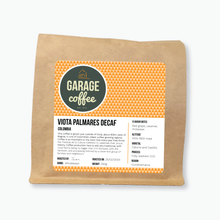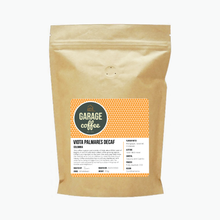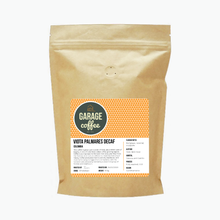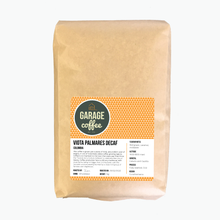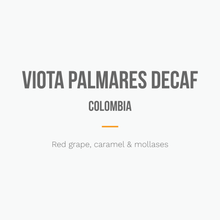
Tasting Notes
Roast Level: Medium
Process: Fully Washed
Varietal: Caturra and Castillo
Roaster's Notes: A lovely classic Colombian coffee, decaffeinated using the CO2 process. This coffee makes for a deliciously sweet espresso, with notes of caramel and molasses with a red grape syruppy-ness!
Farm Info
Producer: Various small holders
Region: Viota, Cundinamarca
Altitude: 1,400 - 1,800 metres
Background Information
Located in the region of Cundinamarca, part of Colombia’s Central Cordillera, Viotá is a community that heavily relies on coffee production as its major output. So much so, the town holds the annual ‘Festival de la Cultura Cafetera’, celebrating their proud history in coffee production.
The town, around 80km to the West of Bogota, is in one of Colombia’s first coffee growing regions. In 1879, when the Colombian government announced that it would support coffee production, coffee plants were imported from Liberia, Africa. When the first boats arrived, entrepreneurial farmers from Bogotá decided to plant their trees nearby, in the town of Viotá. Since then, coffee has hugely influenced both local traditions and society as a whole.
It is no surprise that coffee is the leading agricultural activity in the region. Other crops such as plantain and citrus fruits are also grown, but primarily to provide shade for the coffee trees as well as extra income. Most farms are no larger than 3-5 hectares. However, these small scale farming activities provide the largest percentage of employment by a significant margin. The importance of coffee to the local economy and to livelihoods cannot be overstated.
Every family manages their own cultivation as well as harvesting - usually with the help of neighbours and extended family. Coffee is processed in the traditional way, where cherries are selectively handpicked and placed in tanks filled with clean water. Heavy cherries that sink to the bottom of the tank are then pulped by passing them through a pulper at the family farm (usually located close to the main house), before moving to fermentation. Coffee is then fermented anywhere from 12 to 18 hours, depending on the weather, before again being washed using cold, clean water.
Once fermentation is complete, many of the farmers sundry their parchment on patios or on the roofs of their houses. Some farmers dry their coffee on parabolic beds under the sun. These parabolic beds, known locally as marquesinas –constructed a bit like ‘hoop house’ greenhouses, with airflow ensured through openings in both ends – both protect the parchment from rain and mist as it is dried and prevent condensation from dripping back on the drying beans.
Viotá’s export partner, Condor, provide an agricultural extension service via SMS. SMS helps small groups of farmers in areas such as Viotá to improve their quality and productivity. Individual farms with high levels of productivity and good quality control are reserved - separated from the group lot, allowing a higher price and better returns for the farmer. Farms achieving this ‘microlot’ status will receive an additional payment after the coffee is sold, known in Colombia as a ‘liquidation payment’.





